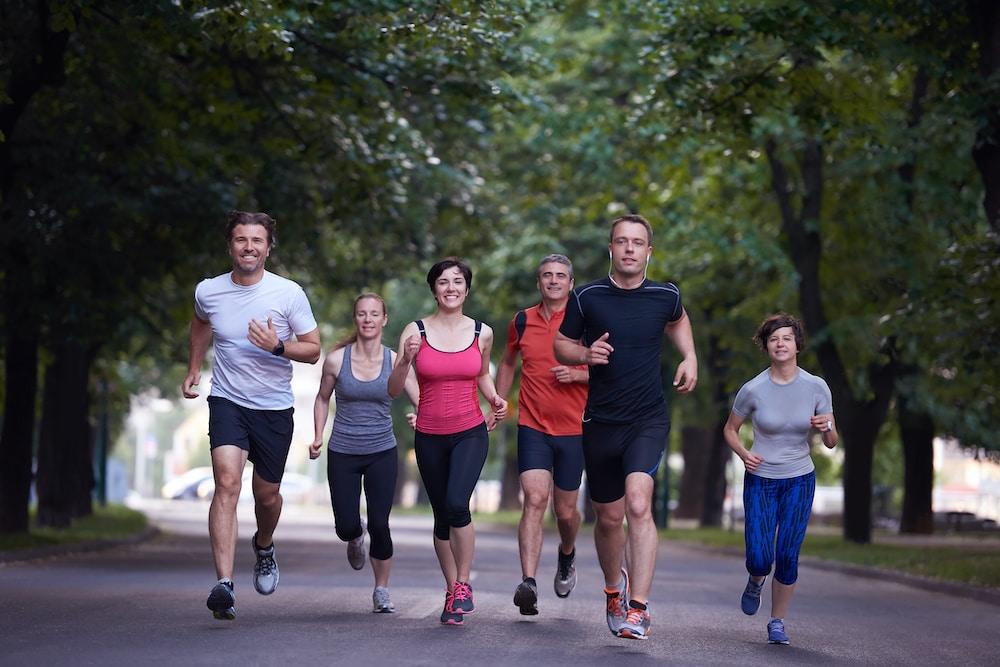
Exercise has long been recognized as a valuable tool in addiction recovery, providing numerous physical and mental health benefits. Incorporating regular physical activity into a recovery routine can help individuals manage stress, reduce cravings, and improve overall well-being. This article explores the importance of exercise in addiction recovery and how it contributes to long-term success.
How Exercise Supports Recovery
Substance abuse often leads to a decline in physical health, including weakened muscles, fatigue, and poor cardiovascular function. Exercise helps rebuild physical strength and restore energy, allowing individuals to feel more capable and resilient during their recovery journey. Additionally, exercise promotes the release of endorphins, known as “feel-good” hormones, which naturally enhance mood and combat feelings of depression or anxiety.
According to Studio City Recovery, exercise is an effective way to support mental clarity and emotional stability in recovery. Physical activity helps reduce stress, alleviate tension, and create a positive outlet for handling difficult emotions. This outlet can be especially important for individuals who have used substances as a way to cope with stress or negative feelings.
Key Benefits of Exercise in Addiction Recovery
-
Reducing Cravings and Managing Triggers
One of the core challenges in recovery is managing cravings and avoiding triggers. Exercise provides a healthy distraction and a way to channel energy into positive activities. Studies have shown that exercise can reduce the severity of cravings and help individuals stay focused on their recovery goals.
According to Hollywood Hills Recovery, regular exercise helps individuals build mental resilience, which is essential for managing cravings and preventing relapse. By creating a structured exercise routine, individuals can develop a sense of purpose and control over their daily lives, reducing their likelihood of turning to substances.
-
Boosting Mental Health and Emotional Well-being
Mental health plays a critical role in recovery, as many individuals in recovery struggle with co-occurring mental health conditions such as depression and anxiety. Exercise has been proven to reduce symptoms of these conditions by promoting the release of endorphins and other neurotransmitters that enhance mood. Physical activity also helps regulate sleep patterns, which is vital for emotional stability.
For individuals dealing with stress, exercise provides a natural way to release built-up tension. Activities such as running, cycling, and yoga offer a therapeutic outlet for stress, allowing individuals to process and manage their emotions constructively.
-
Rebuilding Physical Health and Vitality
Substance abuse can have lasting effects on physical health, from weakened muscles to compromised immune function. Exercise plays a key role in rebuilding physical strength and improving overall fitness. By engaging in activities that enhance cardiovascular health, flexibility, and endurance, individuals can regain physical vitality, which is crucial for maintaining a positive outlook on recovery.
A regular exercise routine also helps individuals build confidence in their physical capabilities, empowering them to set and achieve personal goals. This sense of accomplishment can reinforce a positive self-image and promote lasting change.
-
Creating a Sense of Routine and Purpose
Recovery often requires individuals to establish new routines and find structure in their daily lives. Exercise provides a healthy, goal-oriented routine that helps fill the void left by substance use. By setting achievable fitness goals, individuals create a sense of purpose and commitment to their well-being.
Exercise routines can also foster a sense of discipline and accountability, encouraging individuals to prioritize their health and stay committed to their recovery goals. For many, the routine and satisfaction gained from regular physical activity become a cornerstone of their sober lifestyle.
-
Building a Supportive Community
Group exercise classes, sports teams, and outdoor activities offer opportunities to connect with others who share similar interests and values. Building relationships within these communities provides a sense of belonging, reducing feelings of isolation and supporting social skills development.
By engaging in exercise as part of a group, individuals in recovery can find a supportive network that encourages them to stay active and engaged in healthy activities. This community aspect reinforces the importance of positive, sober connections and enhances motivation.
Types of Exercise to Incorporate into Recovery
There are many forms of exercise that can be beneficial in recovery, depending on individual preferences and fitness levels:
-
Aerobic Exercise: Activities like walking, running, and swimming boost cardiovascular health and improve endurance.
-
Strength Training: Weightlifting and resistance exercises help rebuild muscle strength and increase physical resilience.
-
Yoga and Mindfulness Exercises: Yoga, tai chi, and similar practices promote flexibility, balance, and mental clarity, offering a calming influence that reduces stress.
-
Group Sports and Activities: Joining a sports team or recreational group provides social interaction and a sense of camaraderie, which can be valuable in recovery.
Conclusion
Exercise is a powerful tool in addiction recovery, providing physical, mental, and emotional benefits that support long-term sobriety. By incorporating regular physical activity into a recovery routine, individuals can rebuild their strength, improve mental clarity, and develop healthy coping strategies. Whether through group activities, solo exercise, or mind-body practices like yoga, exercise offers a path to a healthier, more balanced life beyond addiction.
 icons at the top right corner of the subsection.
icons at the top right corner of the subsection.